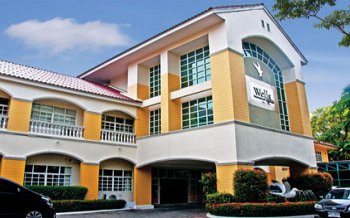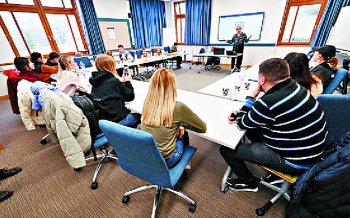News and Events
In our previous column, we shared several main reasons why parents want their children to transfer to international schools, and when the preparation timeline should start. This week, we will discuss key aspects to consider when choosing a suitable school.
When parents are looking for a suitable international school for their children, in addition to paying attention to the location and tuition fees, there are a few more points to take note of.
The first is the teaching quality of the school. The curricula of international schools are different.
For example, some schools use the International Baccalaureate Middle Years Program - which is more flexible, but relies heavily on the school's teaching experience and understanding of the curriculum.
If parents and students attach great importance to the teaching quality of schools and teachers, we would suggest paying more attention to the school's public examination results, or consider schools with longer history, as their teaching experience will generally be stronger.
Following that, are the school's culture and values.
For example, Independent Schools Foundation, Chinese International School and Han Academy put an emphasis on learning Chinese language and culture above English skills.
Schools such as Canadian International School of Hong Kong and those under the English Schools Foundation are more international-oriented.
Christian Alliance International School and International Christian School place more emphasis on religious values.
The learning environment is an equally important element to consider as this will affect their children's growth and development.
Then there is the curriculum of the international school, which we touched on briefly in our previous column.
At present, most international schools in Hong Kong offer the IB curriculum, British A-level and American Advanced Placement courses.
Generally, the IB curriculum is considered to be more comprehensive; in addition to taking language subjects, students will also take both science and humanities subjects.
The A-Level curriculum is more suitable for students who have a clear idea what subjects they want to focus on in the future, because the courses are more flexible in choosing subjects. For example, students who are strong in science can focus on all science and/or mathematics subjects.
When choosing courses, parents should also consider the long term plan for their children's education, such as target universities.
For most universities, IB, A-Level or AP courses are internationally accepted, but there are still areas to note.
If students plan to apply for top universities in the UK for science-related programs, A-Level is a good way to prepare for the entrance examinations. A-Level science courses are the most in-depth of the three courses and most closely relate to UK entrance tests.
If parents want their children to study in the United States, it would be more ideal to take AP courses, as some credits can be transferred when students study in US universities.
Students taking A-Level courses who want to study in a US university will need to build up their academic profile to be more competitive, since A-Level requires students to take only about three to four subjects.
Finally, there is another point that parents should pay attention to in terms of courses.
Some international schools require students to take IGCSE courses before taking A-level or IB, so that students gain experience in public examinations and strengthening their academic profile to give them an advantage when applying to top universities.
Therefore, when choosing such an international school, parents have to look at the preferred path for their children's academic preparation.
In our next column, we will share more on how to prepare for the entrance examination and how to adapt to the international school after being admitted.
https://www.thestandard.com.hk/section-news/fc/14/256446/How-to-select-a-suitable-international-school





